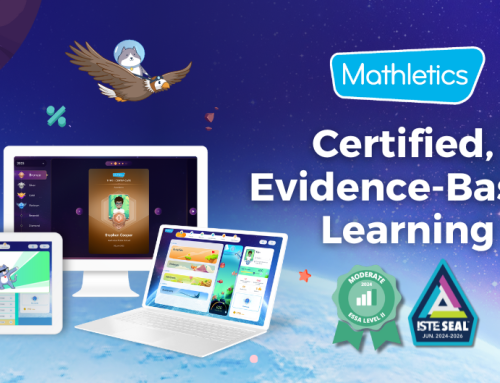Motivation is a complex task. We have to find the best ways of coaxing, enticing, rewarding, and encouraging each student in a way that works for them. But when the day wears on and the coffee wears off, it can feel like we’re demanding, forcing, or flat-out punishing them to get on with their work.
This isn’t good for your or student; it makes them see learning as a burden, and it can make us feel like villains.
But there’s a better way.
According to decades of research in educational psychology, the most effective way to motivate students is to help them to motivate themselves. Using these four strategies to encourage self-motivation, you can have inspire your students to love learning again:
1. Grant Them Learning Autonomy
Provide students with academic choices to increases engagement. This doesn’t mean letting students have control over every facet of their learning – but rather to have a degree of control of what needs to happen and how it can be done.
For example, setting up Problem-Based Learning tasks where students pick a problem they want to tackle, or something as simple as asking students to choose their own topic for a persuasive essay.
2. Build Their Sense of Competence
Students want to feel competent and it’s in your power to set them up for success. Try setting them tasks in their Zone of Proximal Development. Psychologist Lev Vygotsky coined the term “zone of proximal development” (ZPD) in the 1930s to describe the motivation factors for learners: If a task is too easy, learners will likely lose motivation. Likewise, if a task is too advanced, the learners’ can feel demotivated.
3. Make lessons relatable
You’ll need a touch of insider knowledge of your students for this one.
How can the activity help your student feel more connected to the others? Or feel cared about by people whom they respect? Developing relatedness can also help you develop lessons that students are interested in.
4. Connect Learning to the Real World
Get to know your students, and where possible, aim to frame lessons and activities to bring relevance to the students so they can see the task as relatable and valuable. How is the work relevant to the goals they have for themselves? How is it relevant to life?
Bonus Tips
Be constructive and specific in feedback
- Feedback and critique should always be specific to the particular task and performance and not the performer
- Stress the importance of effort, not just the outcome
- Provide students with opportunities to stimulate advancement! Use questions, such as “What if?” to help redirect and advance thinking
Leverage incentives
- While intrinsic motivation is the ultimate goal, it’s important to reinforce and reward effort, sometimes we all need tangible reward a job well done
- Younger students aren’t always able to understand the long-term benefits of getting good grades and learning- they may need instant feedback
- Well-placed incentives, such as extended recess or play may motivate them to work hard and try
Become a role model for student interest
- Deliver your presentations with energy and enthusiasm
- Your passion motivates your students
- Show them why you’re interested in the material
Give gamification a go
- Passive learning can be dull, doubly so if students are already demotivated
- Research has shown that games can be effective learning tools







